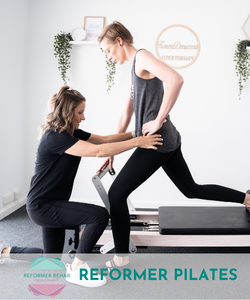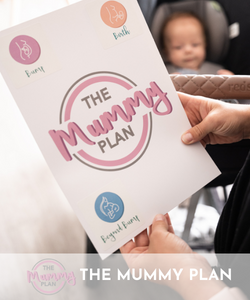The journey of pregnancy doesn’t end with childbirth—it continues into the crucial period known as the 4th trimester. Your Women’s health physiotherapist should play a vital role in supporting you during this transformative phase. In this blog post, we will delve into the 4th trimester and explore the important considerations for women’s physical and emotional well-being. By understanding the unique needs of this period, we aim to empower you to navigate this time with confidence and optimal health.
Post-Partum care should be an ongoing process, with tailored services to support each mother’s individual needs. The postpartum period, also known as the fourth trimester, is a transformative time for new mothers as they adjust to the physical and emotional changes that occur after childbirth.
Here are some key aspects to consider:
1. Physical Postpartum Recovery:
- Physical recovery varies for each woman. Variations are dependent on factors such as; the mode of delivery (vaginal or cesarean), perineal tears, or episiotomies as well as their pre-natal exercise levels, pelvic floor strength and pregnancy related pain / and dysfunction.
- Perineal injury, swelling, and discomfort are common after vaginal birth or women who have labored for long periods. Women who undergo cesarean births will experience significant abdominal pain and tenderness from the abdominal surgery.
- The body will undergo significant healing during the 4th trimester and it’s very important to seek guidance. Pain management is important to allow optimal tissue healing following not only delivery but also the toll that pregnancy takes upon the body. Respect and consideration for the healing process should be practiced at this time and complemented by dietary supplementation and activity modification.
2. Hormonal Fluctuations:
- After childbirth, hormone levels shift significantly. Estrogen and progesterone levels drop rapidly, which can contribute to mood swings, weepiness, and feelings of sadness.
- Prolactin, the hormone responsible for milk production, increases, which can lead to breast engorgement and lactation-related changes.
- Hormonal fluctuations can affect women differently, and it’s important to be aware of these changes and seek support if emotional well-being is affected.
- Reduced Sleep Quality:
- Sleep patterns are often disrupted during the postpartum period due to frequent nighttime feedings, diaper changes, and the baby’s irregular sleep-wake cycles.
- Reduced sleep quality can lead to exhaustion, irritability, difficulty concentrating, and increased vulnerability to mood swings.
- Reduced sleep can limit the healing capacity of the body – when we sleep, we heal. Rest and unloading is important during awake hours to make up for the disruptive sleep through the night.
- Seeking support from partners, family members, or hired help can provide opportunities for rest and sleep.
3. Emotional Adjustments:
- The emotional adjustment to motherhood can be intense and varied. Some women experience a sense of joy, fulfillment, and a deep bond with their baby, while others may struggle with feelings of overwhelm, anxiety, or postpartum depression.
- A delivery debrief is so important. Discussing how the lead up and the actual delivery went from a mother’s perspective has been shown to help significantly in recovery following birth.
- Adjusting to the demands of caring for a newborn, changes in routine, and shifts in personal identity can be challenging.
- It is important to seek emotional support from loved ones, join support groups, and communicate openly with healthcare providers about any concerns or mood changes.
4. Body Image and Self-esteem:
- Many women experience changes in body image and self-esteem postpartum.
- The physical changes that occur such as; weight fluctuations, stretch marks, and changes in breast size can impact how women perceive themselves.
- A post-natal assessment from your Women’s Health Physio can address physical changes that have occurred during pregnancy and put a plan in place to work towards your ideal health. A postural, abdominal, core and pelvic floor strength program will be discussed and implemented.
- Practicing self-compassion, focusing on self-care, and surrounding oneself with positive support can help navigate body image issues during this time.
5. Relationship Dynamics:
- The arrival of a new baby can place strain on relationships, especially with partners.
- Lack of sleep, increased responsibilities, and adjustment to new roles as parents can lead to stress and communication challenges.
- Nurturing open and honest communication, expressing needs and concerns and seeking couples’ counseling if necessary, can help navigate these changes.
- Your Women’s Health Physio can help your partner understand the physical demands of delivery and the necessary time frames for healing. This can make discussing the commencement of intercourse a much more informed conversation.
Overall, the postpartum period is a time of immense change, both physically and emotionally. It’s important for new mothers to prioritise self-care, seek support, and communicate their needs.
Ideally, your post-natal recovery plan will have been established during your pregnancy… an optimal peri – natal program will include education, preparation and the implementation of positive strategies to aid and support you every step of the way.
Post Natal recovery begins immediately after birth as your body is in considerable disarray, wondering what just happened and already trying to find a way back to an optimal, functional physical being.
When meeting with your Women’s Health Physio we begin with optimal pain management and gentle core activation:
- Gentle core activation exercises reconnect the brain – muscle pathway and commence activation of deep abdominal muscles and core system muscles including transversus abdominis and pelvic floor.
- Pain Management: Post – partum is not a time to be a pain warrior as muscles can only function in an optimal environment. Therefore, appropriate pain relief is essential for recovery whether it be natural or pharmaceutical.
- Focus on diaphragmatic breath work: Remember your diaphragm, pelvic floor and core work together as a team, they all need careful consideration and guidance during the post-natal period.
- We start with gentle pelvic floor contractions by squeezing and lifting the muscles as if you’re stopping wind, but only after a deep pelvic floor relaxation – / diaphragmatic breathwork.
- Gradually increase the duration and intensity of the contractions while maintaining proper breathing and avoiding breath-holding.
Important Considerations:
Listen to Your Body:
- Pay attention to your body’s signals and adjust the intensity or modify exercises if you experience any pain, discomfort, or excessive fatigue.
- Avoid activities that put excessive strain on the pelvic floor, such as high-impact exercises or heavy lifting.
Gradual Progression:
- Take a gradual approach to exercise progression and gradually increase the intensity, duration, and complexity of exercises over time.
- Every woman’s postpartum recovery is different, so it’s important to respect your individual journey and progress at a pace that feels comfortable for you.
Seek Professional Guidance:
- Please consult with a women’s health physiotherapist with expertise in postpartum exercise to ensure you’re performing exercises correctly and safely.
Remember, postpartum recovery should be supported, informed, individual and modified.
Please show yourself compassion and care. There is no timeline to follow – please listen to your body and take care of you.
Congratulations once again on your pregnancy / new bundle of joy x
As always, sending lots of love from:
Your Post Natal Cheer Leader,
Karen Denwood









